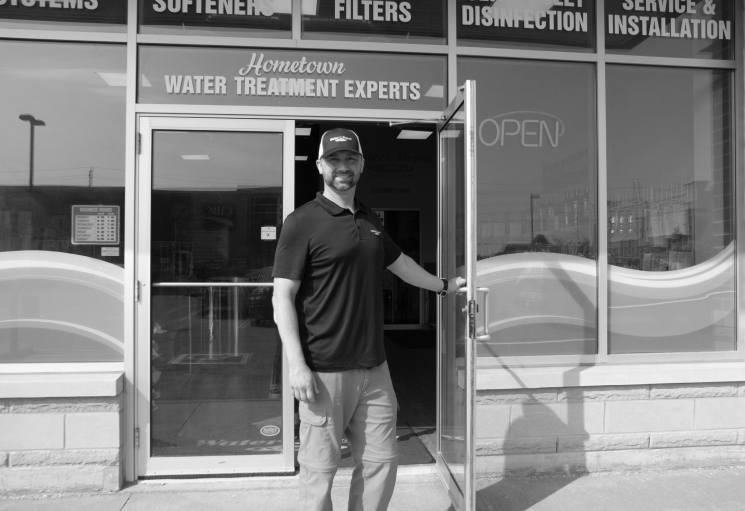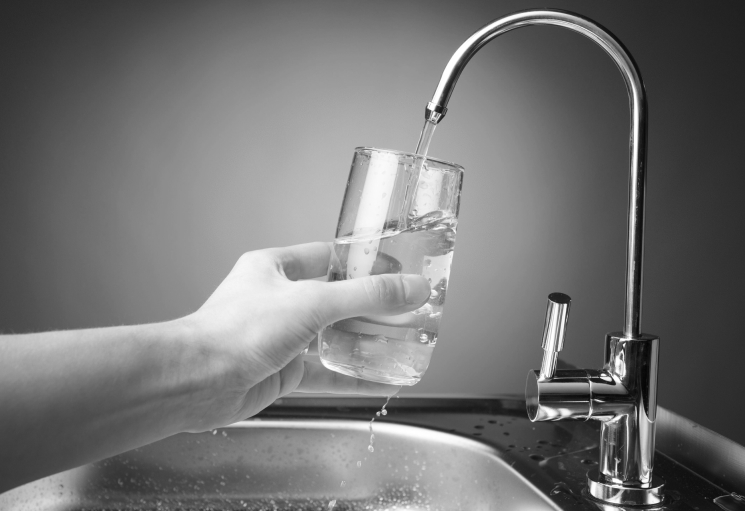
Whether you have municipal or well water, hard water can be a problem for many households. Minerals in your water can cause your water to be hard, leaving scale build-up on your bathroom fixtures, inside your water heater, dishwasher, washing machine, and on your hair and skin.
Scale build-up is the most common indicator of hard water. It is made up of dissolved limestone, calcium, and magnesium found in water which leaves scale behind on sinks, tubs, dishwashers, and other areas of contact.
Hard water is safe to drink and wash with, but over time it can lead to ugly and costly problems. Stains in toilets, sinks, and showers are the most noticeable problem that occurs with hard water. However, scale can also build up in pipes and in appliances which can cause flow and pressure loss, costly repairs or the need to replace appliances.
Hard water can be hard on clothes and the calcium and magnesium content of hard water can cause clothes to turn gray or yellow. High mineral content can also inhibit the water from mixing with laundry detergents, so clothes don’t clean as well.
Hard water is very tough on hair, skin, and nails. The minerals in hard water build up on our bodies and hair, forming a film that is difficult for moisture to penetrate.
Water Treatment Equipment for Hard Water
Water Softeners soften water by reducing the hardness minerals through a process known as ion exchange. When hard water enters your softener, it flows around ion charged resin beads. Hardness minerals, which hold an opposite charge, are attracted to the resin beads and attach to them. Producing soft water throughout your home, as the hardness minerals have remained in your water softener.
A brine tank, which holds salt and water, is a part of your water softener unit and is used to clean the resin beads. When the beads become exhausted with hardness minerals it is necessary to clean them so they can start the process all over again. The cleaning of the media, or regeneration, is an automatic process and the programming for this will be set by your water treatment expert at the time of installation.
Water Treatment Equipment Service Plans
With a Water Depot service plan a qualified water treatment expert, from one of our Water Depot locations, will service your water softener and brine tank to ensure your family has clean, soft water for many years to come.
Meet Your Local Water Depot Water Treatment Experts
Water Depot is proud to have 36 franchise stores located throughout Ontario. If you are looking for water treatment solutions in Southwestern Ontario, Water Depot has stores in Guelph, Kitchener, Waterloo, Cambridge, and Brantford.
Guelph and Kitchener
At Water Depot Guelph and Water Depot Kitchener, owner Pari Gandhi is dedicated to providing clean and clear water to Guelph, Kitchener and the surrounding areas.
Brantford and Cambridge
Bill and Sandy Goold have been servicing the communities of Brantford and Cambridge for over 19 years with 2 locations to serve you.
Waterloo
For over 5 years, Greg Watson has been your local water treatment expert in Waterloo.
Water Depot
Did you find the information in this article useful? Visit waterdepot.com to find your locally owned Water Depot location.






